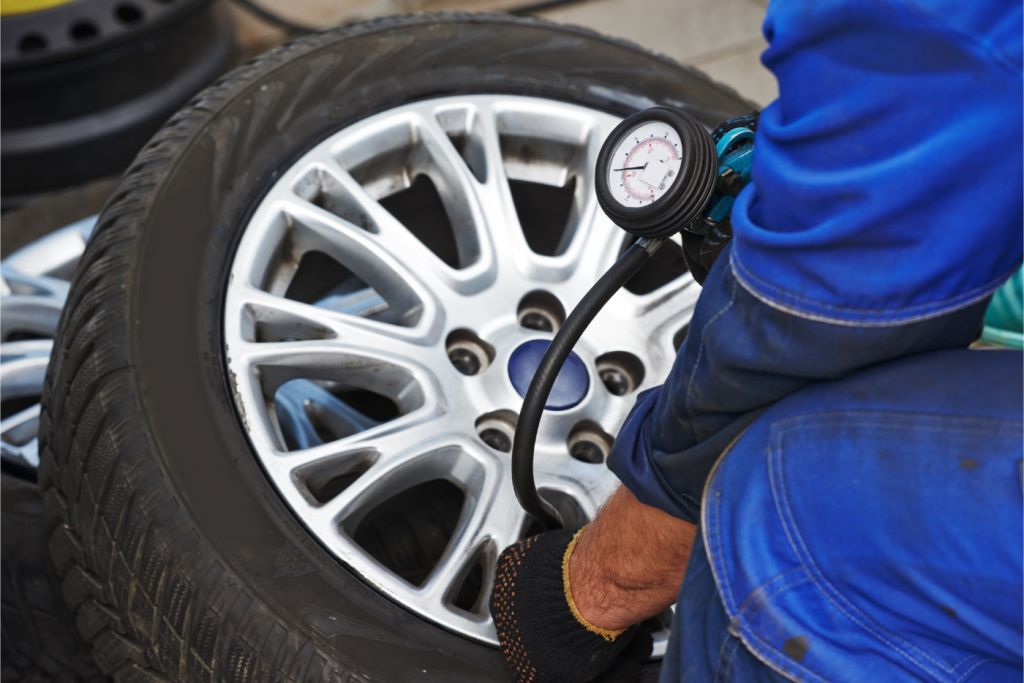You just got air for your tires. Should you tip the attendant? If so, how much should you give them? This article explains if and how much you should tip for putting air in your tires.
Tipping for airing up tires is not expected or required. Most gas stations provide this service for free or include it with a gas purchase. However, if you wish to offer a tip for exceptional service, $1-2 per tire is an appropriate amount.

When we pull up to a gas station for a tire check or to inflate our tires, tipping may cross our minds. It’s important to recognize the individuals who provide these services and understand appropriate tipping practices.
In many cases, if the service of checking your tire pressure or inflating your tires is offered as a complimentary service, tipping is not obligatory, but it's certainly appreciated as a gesture of gratitude. However, if we feel that the service person has gone above and beyond—for instance, providing service in extreme weather conditions or doing a notably thorough job—it’s a kind gesture to offer a tip.
Tipping Range:
The standard tip for these services is typically around $1-$2 per tire. Below is a suggested guideline:
| Service Quality | Suggested Tip Per Tire |
|---|---|
| Good Service | $1 |
| Excellent Service | $2 or more |
This range can be adjusted based on the quality of service received and our own discretion.
If we frequent a service station for our tire needs, building a rapport through regular tipping can be beneficial. It’s a simple way of saying thank you for their tire service expertise.
In the conversation about tire maintenance, tire pressure stands out as a crucial factor for both safety and efficiency. Let's explore its importance, how to check it, and what those numbers on the gauge really mean.
Maintaining the correct tire pressure is essential for our vehicle's performance and longevity. It ensures adequate traction, reduces tire wear, and improves fuel economy. Driving with improperly inflated tires can lead to tire failure and even accidents. The recommended tire pressure for our vehicle is typically between 30 to 35 PSI, which can be found in the owner’s manual or on a sticker located on the door jamb or fuel door.
To accurately check our tire pressure, we will need a reliable tire pressure gauge. It is best to check the tires when they are cold, before driving or at least three hours after the vehicle has been parked. To do this, we simply remove the valve cap from the tire, place the gauge on the valve stem, and press down to get a reading.
A tire pressure gauge can be either digital or analog. It measures the pressure in pounds per square inch (PSI). Once the gauge is pressed against the tire's valve stem, it displays the tire's pressure. If the reading is below the recommended tire pressure, we'll need to add air to the tire. Conversely, if it’s too high, we'll need to let some air out.
We've equipped ourselves with basic yet pertinent knowledge on tire pressure – an often underrated aspect of tire maintenance that nevertheless holds great significance.
Ensuring proper tire inflation is pivotal in maintaining our vehicle's performance. We're looking specifically at how tire pressure influences tire health and safety, as well as fuel efficiency.
By monitoring and maintaining correct air pressure in our tires, we ensure the best performance of our vehicle, optimizing both safety and fuel economy.
When ensuring our tires are adequately inflated, we may encounter specific alerts or failures that need to be addressed promptly to maintain safety and performance.
The Tire Pressure Monitoring System (TPMS) alerts us on our dashboard when there is low tire pressure, which can affect the tire's grip and overall health. Here are steps to follow:
In the unfortunate event of a tire failure such as a puncture or blowout:
By promptly addressing TPMS alerts and handling tire failures correctly, we help ensure our continued safety and the longevity of our tires.
Maintaining proper tire pressure and consistent check-ups are essential for the longevity of your tires. We'll guide you through the crucial steps to keeping your tires in top condition, ensuring safety, and optimum driving performance.
Tire Pressure Checks:
We recommend checking tire pressure at least once a month. Proper tire inflation is key to preventing premature wear. If your vehicle is equipped with a tire pressure monitoring system, keep an eye on it and address any warnings promptly.
Professional Tire Services:
For services beyond your monthly check-ups, we trust professionals like Goodyear Auto Service and Discount Tire. They offer comprehensive tire inspections, rotations, and repair services.
Choosing Professional Services:
We suggest choosing reputable service providers for several reasons:
Remember, taking care of your tires is not just about maintenance—it's also about safety. By following these steps and opting for professional services when needed, we ensure a safer and more efficient ride.